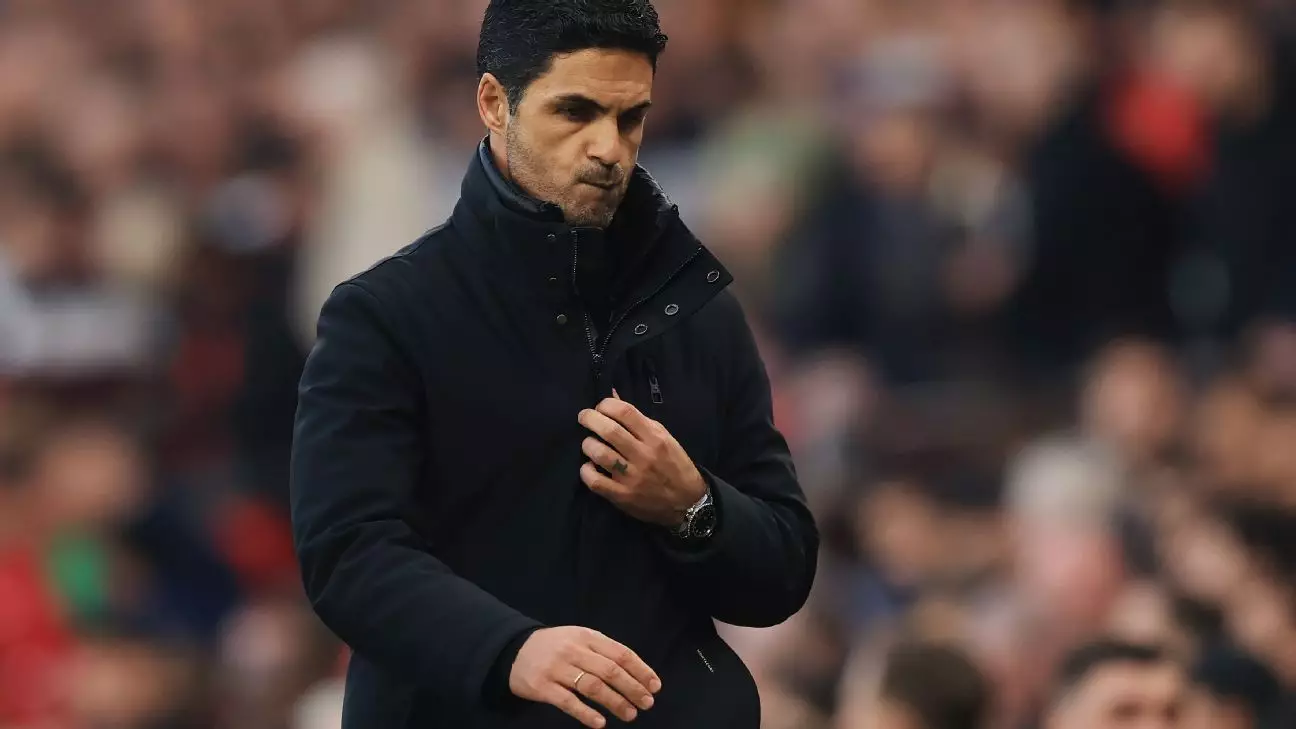Arsenal Football Club, a name synonymous with English football prowess, finds itself at a critical juncture. Mikel Arteta, the club’s manager, has openly expressed his intentions to bolster the squad with a potent striker this summer. After enduring another trophyless season, Arsenal faces mounting pressure to enhance their attacking options. The recent Champions League semifinal exit at the hands of Paris Saint-Germain has highlighted the team’s shortcomings. Despite Arteta’s commendable work since taking over in December 2019, with the only silverware being the 2020 FA Cup, the club’s ambitions remain obscured by a reliance on insufficient goal-scoring.
Arteta’s candid admission that acquiring a top-tier striker is one of the toughest challenges reflects the broader demands and complexities of modern football. While the team has showcased improvement and development, the lack of clinical finishing has thwarted their progress in high-stakes scenarios. The manager’s assertions about the necessity of a forward are not mere rhetoric; they underline a fundamental truth in football that teams desiring to compete for titles must possess an elite striker capable of changing games.
Strategic Targets: The Path Ahead
The search for a striker brings names such as Benjamin Sesko of Red Bull Leipzig, Viktor Gyökeres from Sporting Lisbon, and Newcastle’s Alexander Isak into focus. Each player brings a unique profile that could potentially elevate Arsenal’s attacking dynamics. However, what awaits is not just a bid for a new striker but the strategic acumen to integrate such talent within Arsenal’s existing framework. It is essential to consider how these new signings will complement or challenge the current roster as Arteta aims to create a squad with depth and versatility.
Arteta recently referenced the January transfer window, where a move for Ollie Watkins fell through. This reflects a frustrating pattern in the club’s recruitment strategies. The desire for the “best team” and “best player” resonates through Arteta’s remarks, emphasizing that the ambitions for improvement aren’t simply about inflating squad numbers but about making astute decisions in player acquisitions. Arsenal’s history and reputation must not only attract talent but also ensure those talents align with the team’s ethos and vision.
Evaluating Progress Amidst Setbacks
Despite the relative success Arteta has achieved, it cannot be overlooked that the team has regressed in league performance. A second-place finish garnished with impressive statistics last season creates an expectation that has been unmet this campaign. With only 67 points and a downturn in goals scored, the team seems to be at a crossroads: stagnation or rejuvenation. This assessment opens a dialogue on player performance and the coaching staff’s tactical implementations.
Arteta’s reflections on the team’s progression are encouraging, as they highlight his commitment to nurturing existing talents as well. His philosophy suggests that instead of wholesale changes following disappointments, a deeper analysis of player contributions should guide decision-making. Yet, while introspection on existing squad members is key, it is equally crucial to identify potential weaknesses and rectify them with high-caliber talent. This balancing act of respecting the current squad while pursuing necessary enhancements will be critical for Arteta’s success.
Recognition of Rivals and The Art of Competition
Foremost in any competitive environment is recognizing the prowess of others. Arteta’s acknowledgment of Liverpool’s achievements serves not only as a testament to their consistency but as a subtle call to action for his own side. The notion of a guard of honor for Liverpool when Arsenal visits Anfield exemplifies sportsmanship and an understanding of competitive realities. Arteta’s comments reflect a wisdom that transcends mere rivalry—it’s about setting a standard that his team aspires to.
By admitting that Arsenal has taken a step back, Arteta positions himself as a leader who is unafraid of honesty. His willingness to celebrate the achievements of others while challenging his team to rise to new heights embodies the spirit of a true football strategist. As the club looks toward the future, the synthesis of introspection, recruitment strategy, and respect for rivals will be paramount in reclaiming Arsenal’s prestigious status in English and European football.
In an era where the stakes are higher than ever, the pulse of Arsenal runs deeper, encapsulating a journey intertwined with hopes, aspirations, and the perennial quest for greatness.


Leave a Reply